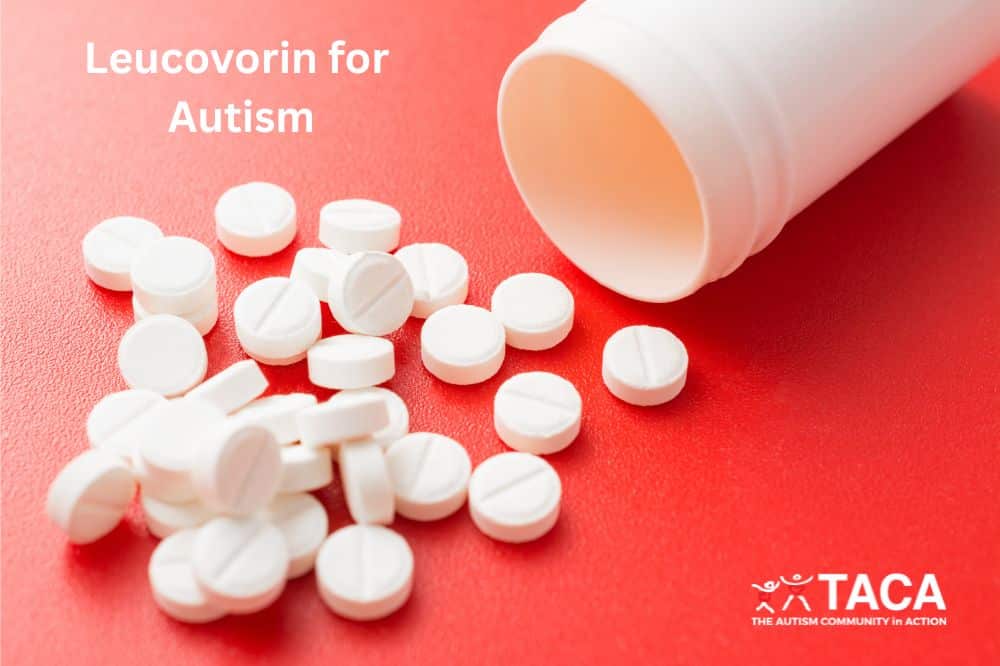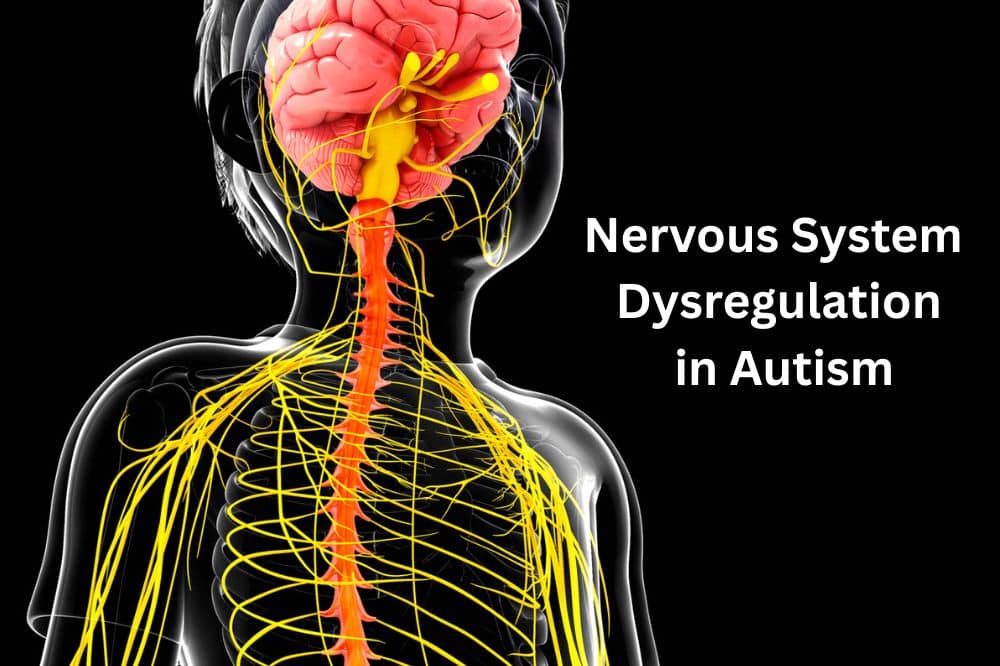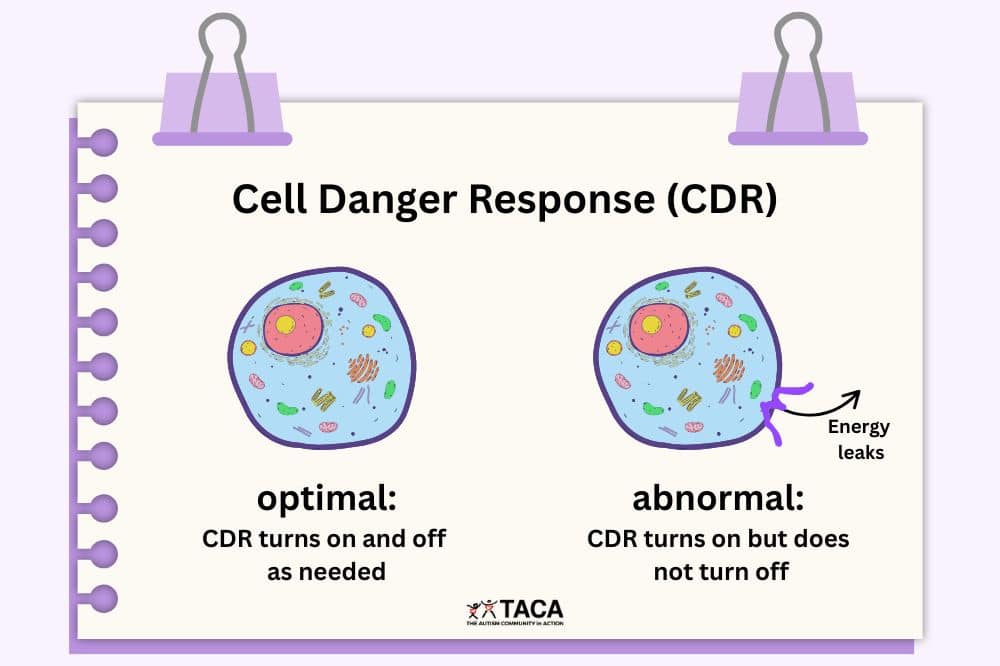Brain Health in Autism
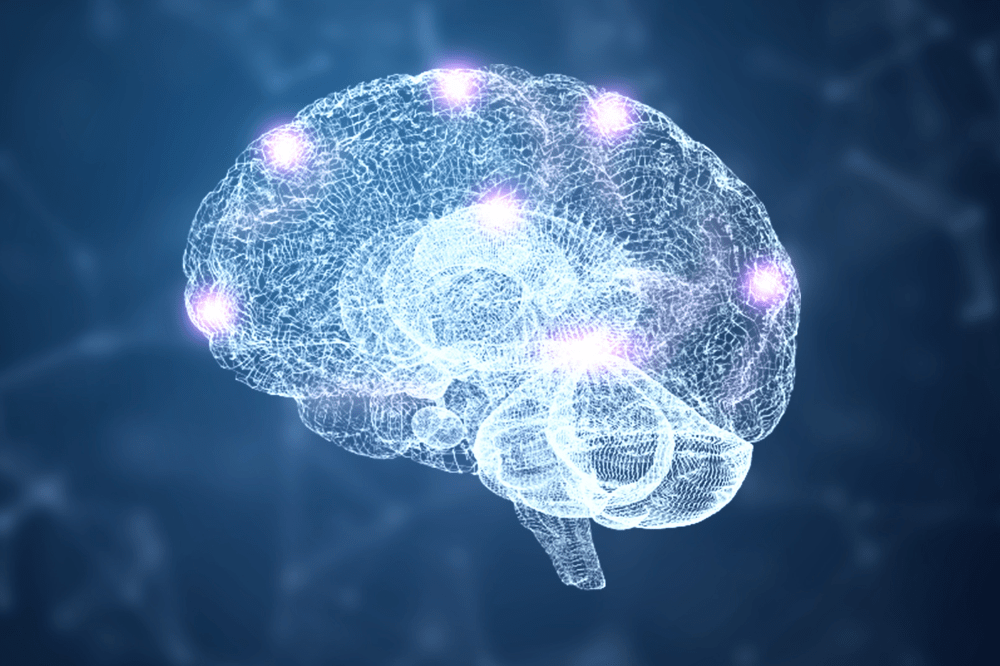
All contents of this resource were created for informational purposes only and are not intended to be a substitute for professional advice, diagnosis, or treatment. Always seek the advice of your physician, therapist, or other qualified health providers with any questions or concerns you may have.
Supporting brain health is important for everyone but especially our kids with autism. Research has shown that people with autism have unstable vessels in the brain which prevents the proper delivery of blood flow. Furthermore, studies in postmortem autistic brains suggest excessive blood vessel growth in the brain. In addition, brain imaging techniques show differences in blood flow between autistic people and controls.
Interestingly, it may not be as simple as low blood flow. Instead, it might be a matter of unhealthy brain neurons. This 2019 study looked at N-acetylaspartate (NAA) in the brain. NAA is an amino acid byproduct used as a marker of healthy neurons. When NAA was low, blood flow was high in the white matter of the brain. In fact, the higher the blood flow, the more severe the autism symptoms. This supports the theory that the brain is overcompensating due to unhealthy neurons.
All of this research tells us that supporting brain health in autism is important.
This article will cover:
- Symptoms of poor brain health
- How to improve brain health
- Supplements to improve brain health

Symptoms of Poor Brain Health
If you are seeing a combination of these symptoms in your child, talk to your functional medicine doctor about optimizing brain health.
- Anemia (low iron)
- Confusion
- Difficulty swallowing
- Dizziness
- Low or high blood pressure
- Numbness
- Poor balance
- Rigidity
- Sensory integration dysfunction
- Slow processing
- Slurred speech
- Weakness in arms and legs
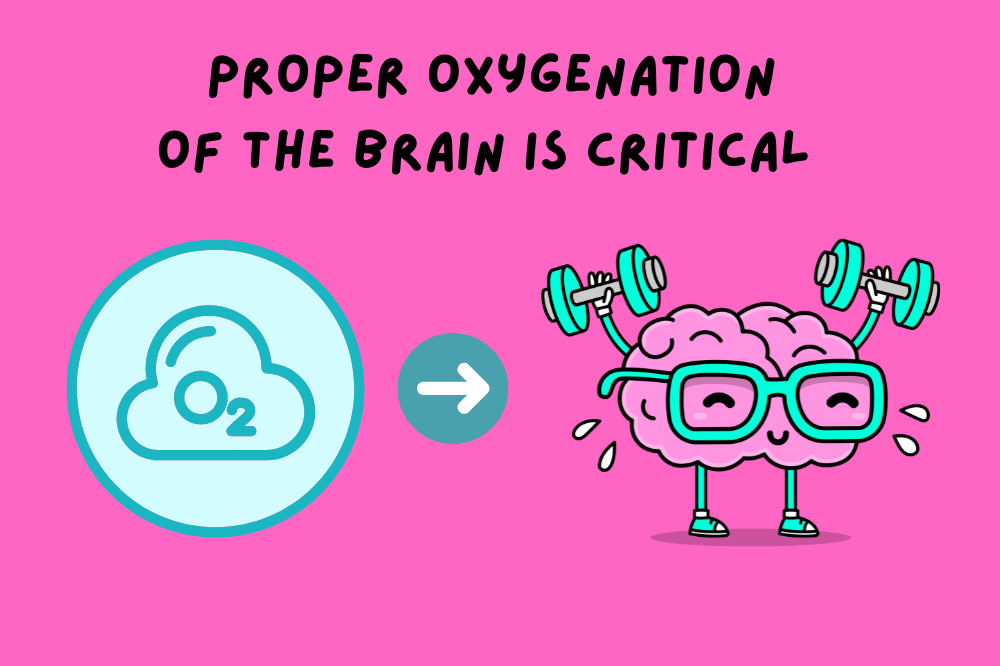
How to Improve Brain Health
Getting sufficient oxygen and nutrients to the brain is critical for optimal brain function. Therefore, we will discuss options to discuss with your child’s doctor to achieve better brain oxygenation.
Exercise
- Regular physical activity benefits the brain.
- High intensity exercise that raises the heart rate for 5-10 minutes upon waking raises endothelial NOS (eNOS) which activates energy in the brain.
- Please know your child’s limits and teach them to listen to their body.
Treat low blood pressure
- Do not confuse low resting heart rate (which is good) with low blood pressure (which is not ideal).
- Low blood pressure indicates not enough oxygen is getting to the brain.
- It also may be a sign of adrenal fatigue or chronic infections.
- In this situation, use salt in food and glycyrrhiza to bring blood pressure up to 120/80.
Treat high blood pressure
- High blood pressure decreases blood flow to the brain.
- For that reason, cut salt from diet to bring BP down to 120/80.
- In addition, add magnesium and potassium to diet.
- Exercise routinely.
Resolve anemia
- Anemia causes low blood flow to the brain.
- For this reason, you MUST resolve anemia to resolve brain health.
- Blood tests can tell you if you have low iron, low ferritin (iron stores), B12 anemia, or pernicious anemia.
Deep belly breathing exercises
- The brain needs oxygen.
- Therefore, practice deep breathing exercises to drive oxygen to the brain.
Eat for brain health. Examples include:
- Healthy fats
- Blueberries
- Salmon
- Eggs
- Leafy greens
Hyperbaric Oxygen Therapy (HBOT)
- HBOT is a top intervention for brain injury and improved brain function.
- As such, HBOT has been shown to improve cerebral blood flow, brain metabolism, and brain microstructure.
- Learn more about Hyperbaric oxygen therapy for autism in the TACA article here.
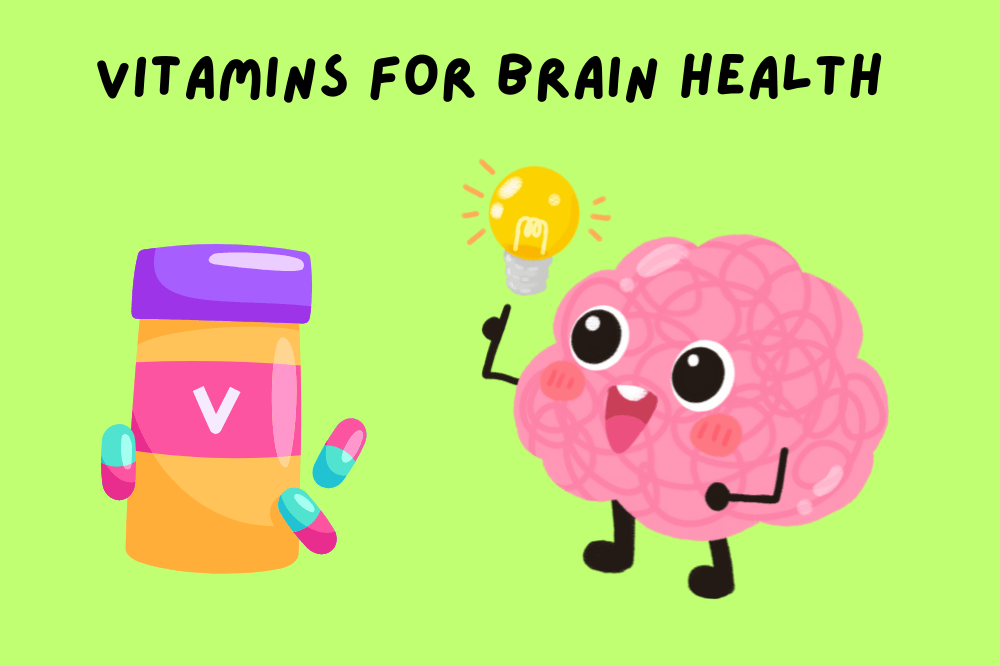
Supplements that Benefit Brain Health
These supplements are known for enhancing brain health. Please discuss treatment plans with your functional medicine doctor before incorporating these vitamins into your child’s routine.
Fish Oil
- Fish oil increases learning, memory, cognitive well-being, and blood flow in the brain.
- This study showed Omega-3 treatment improved autism characteristics including stereotyped behaviors and social communication.
- Kids were given one capsule of 1000 mg omega-3 daily for 8 weeks (including EPA and DHA)
- Full PDF of study here.
- Kids were given one capsule of 1000 mg omega-3 daily for 8 weeks (including EPA and DHA)
Sulforaphane
- Sulforaphane upregulates Nrf2, enhancing resistance to oxidative stress.
- Additionally, it treats memory and learning deficits for patients with frontal brain damage.
- This study showed significant changes with sulforaphane in biomarkers of glutathione redox status, mitochondrial respiration, inflammatory markers and heat shock proteins.
- Study used Avmocol 125mg tablets
- See study for how researchers dosed sulforaphane.
Phosphatidylcholine
- Phosphatidylcholine is a phospholipid, which is one of the key elements that make up our cell membranes.
- This study shows changes in lipid metabolism are associated with ASD and result in an altered distribution of phospholipids in cell membranes.
Acetyl L-Carnitine
- The amino acid acetyl-L-carnitine (ALC) is a naturally occurring form of L-carnitine found in the brain and liver.
- ALC has been shown to have neuroprotective effects in metabolic stress.
- This study showed alleviation of behavioral abnormalities by Acetyl L-Carnitine therapy in the valproic acid model of autism is associated with an improvement in the gut microbiota short chain fatty acids, intestinal barrier, and recovery of microglia and inflammation in the brain.
Vinpocetine
- This is often referred to as “HBOT in a bottle” because it improves blood flow in the brain and increases eNOS (the beneficial form of nitric oxide)
- This study showed Vinpocetine rectified important behavioral phenotypes related to autism, possibly by improving markers of neuronal function, brain inflammation, and brain oxidative stress.
Ginkgo Biloba
Ginkgo Biloba promotes blood flow to the brain without raising blood pressure.
Vitamin B12
- Vitamin B12 plays a role in preventing brain atrophy, which is the loss of neurons in the brain.
- Additionally, as this TACA article outlines, Methyl B12 can help relieve symptoms of autism.
Folate (Vitamin B9)
- Folate (5MTHF) supports optimal neurotransmitter levels, cellular detoxification, and the metabolism of purines and pyrimidines, which are the building blocks of RNA and DNA.
- Cerebral Folate Deficiency (also known as CFD) is a disorder found in autism in which there is low 5-MTHF (5-methyltetrahydrofolate) in the cerebrospinal fluid.
- This meta-analysis showed that Leucovorin (treatment for CFD) for autism showed improvements in:
- Overall ASD symptoms (67%)
- Irritability (58%)
- Coordination, balance & speech (88%)
- Pyramidal signs (76%)
- Movement disorders (47%)
- Epilepsy (75%)
- See this TACA article for more information on Cerebral Folate Deficiency
ATP (Adenosine 5-triphosphate)
- ATP is energy.
- Therefore, it is needed fuel for all cellular activity.
- In addition, it activates the beneficial forms of nitric oxide (both eNOS and nNOS) to decrease inflammation.
- This published article discusses how ATP reduces fatigue, increases strength and power, and improves body function.
Conclusion
In conclusion, supporting brain health is crucial, especially for children with autism. Research indicates that individuals with autism may have unstable brain vessels, leading to impaired blood flow. However, recent studies suggest that the issue may stem from unhealthy neurons rather than low blood flow. This emphasizes the importance of promoting brain health in individuals with autism. By taking proactive steps to prioritize brain health, we can enhance the well-being and quality of life for individuals with autism.

